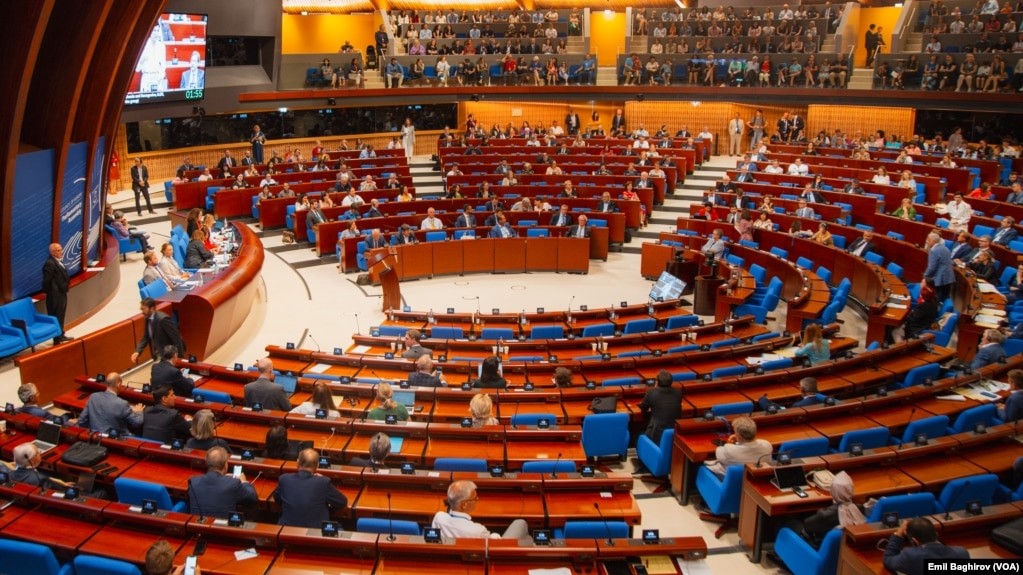"Time shows that Europe still does not understand the realities of Azerbaijan." A perspective from Baku.
Relations between Azerbaijan and PACE
Relations between the Parliamentary Assembly and official Baku continue to deteriorate. Statements from certain Assembly members and responses from the Azerbaijani Foreign Ministry are following in quick succession.
- Helsinki Commission: “Armenia is distancing itself from Moscow, while the Georgian government leans toward Russia.”
- Demand for Pashinyan’s resignation – live at midnight on Armenia’s Public TV
- Middle Eastern stalemate: a view from Baku
The Azerbaijani edition of JAMnews asked political commentator Haji Namazov about the possible paths for reconciling the positions of the parties in this verbal conflict, which has already led to the withdrawal of the Azerbaijani delegation from PACE and the declaration of 76 MEPs as “persona non grata” in Azerbaijan.
“The latest statements made in the Parliamentary Assembly of the Council of Europe once again demonstrate that Europe still does not understand the realities of Azerbaijan and does not even try to delve into the problem. German MP Schwabe and some others, like a broken record, keep repeating the same points, which does not help the process of bringing Baku closer to European structures.
It should be understood that Azerbaijan is a self-sufficient state and, for the most part, does not depend on Europe. Yes, European countries are the largest buyers of this Caucasian country’s energy resources, but they have no other choice. Following the unprecedented sanctions imposed on Russia, Europe has struggled to address its energy security, and Azerbaijan has been its crucial ally in this regard. In addition to oil and gas, Baku also intends to export electricity alongside Georgia. In other words, the South Caucasus is of interest to European countries due to the potential delivery of “green energy.”
As for Azerbaijan, it needs Europe only to a certain extent. And as we can see, the method of blackmail does not work with Baku on fundamental issues.
I have noted several times in our discussions that PACE behaves unfairly toward Azerbaijan. The surge of anti-Azerbaijani sentiments in the Assembly coincided with the time when our country restored its territorial integrity and expelled the Armenian armed forces from its territory. By the way, we did not hear a single call for sanctions against Armenia, whose forces were located in a neighboring country.
Furthermore, the arguments made by MEPs regarding the presence of political prisoners in Azerbaijan do not withstand scrutiny, as they serve merely as a “supporting tool” in their rhetoric. Political prisoners have existed before, yet PACE only began to recall them after Baku arrested war criminals responsible for the deaths of hundreds of civilians in Karabakh and the surrounding regions of Azerbaijan. Interestingly, the detained terrorists do not deny their involvement in mass killings. The facts are undeniable.
It is quite telling that European parliamentarians mention detained separatists alongside arrested journalists and other political prisoners.
Yes, President Aliyev personally stated in Italy that more than seventy PACE deputies have been declared ‘persona non grata’ in Azerbaijan. They express outrage at this decision by official Baku. One might ask, why do they want to visit Azerbaijan?
MEPs are, it should be understood, intelligent individuals who have some understanding of life. However, they need to recognize that before accusing an entire country of wrongdoing, they should listen to it, delve into the problem, and study it thoroughly.
The more PACE escalates its relations with Azerbaijan, refusing to engage in dialogue with Baku, the more it will push this South Caucasian country away. It is worth heeding the opinions of deputies from Serbia and Turkey, who are calling for dialogue. Otherwise, European parliamentarians will find themselves having to listen to what they are saying, as this will no longer be of interest to anyone in Baku.”



















